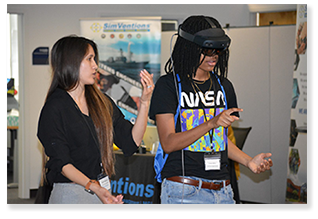Location
Virginia Modeling, Analysis and Simulation Center, Room 1201
Conference Title
Modeling, Simulation and Visualization Student Capstone Conference 2023
Conference Track
Data Science
Document Type
Paper
Abstract
The sudden arrival of many migrants can present new challenges for host communities and create negative attitudes that reflect that tension. In the case of Colombia, with the influx of over 2.5 million Venezuelan migrants, such tensions arose. Our research objective is to investigate how those sentiments arise in social media. We focused on monitoring derogatory terms for Venezuelans, specifically veneco and veneca. Using a dataset of 5.7 million tweets from Colombian users between 2015 and 2021, we determined the proportion of tweets containing those terms. We observed a high prevalence of xenophobic and defamatory language correlated with the terms, with the latter perpetuating a sexist portrayal of female Venezuelan migrants.
Keywords:
Migration, Xenophobia, Natural language processing, Social media
Start Date
4-20-2023
End Date
4-20-2023
Recommended Citation
Martínez, Joseph; Miller-Felton, Melissa; Padilla, Jose; and Frydenlund, Erika, "Behind Derogatory Migrants' Terms for Venezuelan Migrants: Xenophobia and Sexism Identification with Twitter Data and NLP" (2023). Modeling, Simulation and Visualization Student Capstone Conference. 4.
https://digitalcommons.odu.edu/msvcapstone/2023/datascience/4
DOI
10.25776/9ga8-1467
Included in
Artificial Intelligence and Robotics Commons, Computer Engineering Commons, Data Science Commons, Latin American Studies Commons, Migration Studies Commons, Social Media Commons
Behind Derogatory Migrants' Terms for Venezuelan Migrants: Xenophobia and Sexism Identification with Twitter Data and NLP
Virginia Modeling, Analysis and Simulation Center, Room 1201
The sudden arrival of many migrants can present new challenges for host communities and create negative attitudes that reflect that tension. In the case of Colombia, with the influx of over 2.5 million Venezuelan migrants, such tensions arose. Our research objective is to investigate how those sentiments arise in social media. We focused on monitoring derogatory terms for Venezuelans, specifically veneco and veneca. Using a dataset of 5.7 million tweets from Colombian users between 2015 and 2021, we determined the proportion of tweets containing those terms. We observed a high prevalence of xenophobic and defamatory language correlated with the terms, with the latter perpetuating a sexist portrayal of female Venezuelan migrants.


